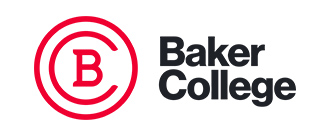Are you seeking an education that could help you develop the fundamental technical skills needed to pursue entry-level careers in corporate IT departments or related settings? If this is your goal, then you might consider the curriculum offered in Baker College's Associate of Applied Science in Computer Programming program. Find out more about this associate's degree program here.
<h2 id="section---FrequentlyAskedQuestions">Frequently Asked Questions</h2>
<h3 id="section---WhatKindOfProgramIsIt">What Kind of Program Is It?</h3>
<p>Once enrolled in the Baker College Associate of Applied Science in Computer Programming program, you will study basic practices and principles in programming logic, database management, and systems development. You could choose to take this program online or at a select Baker College campus. Core courses are designed to offer study in various programming languages including Java, SQL, C++, RPG IV, and Visual BASIC. You will learn about database design, operating systems, information systems development, file design, and systems architecture. In addition, you will have the chance to take courses in algebra, trigonometry, discrete mathematics, and communications. A hands-on work experience allows you to apply techniques and methods studied in the program in real professional environments.
</p>
<h3 id="section---WhatAreThePrerequisites">What Are the Prerequisites?</h3>
<p>Before enrolling in this program, you should have an understanding of basic computer systems and functions. It could also be helpful to have strong math, analytical, and problem-solving skills. Though requirements may vary, you should have earned a high school diploma or equivalent.
</p>
<h3 id="section---WhatAreTheCourseRequirements">What Are the Course Requirements?</h3>
<p>As a student of Baker College's Associate of Applied Science in Computer Programming program, you will be required to earn a total of 97 total credits. You must complete 67 credits in the core curriculum and 30 credits in general education coursework.
</p>
<p><u>Core Courses</u>
</p>
<p />
<table border="1"><tr><th>Course Code</th><th>Course Name</th></tr>
<tr><td>CIS 114</td><td> Database Fundamentals</td></tr>
<tr><td>CIS 251</td><td> Systems Development Methods</td></tr>
<tr><td>CIS 303A</td><td> Computer Architecture</td></tr>
<tr><td>CIS 310</td><td> Visual BASIC</td></tr>
<tr><td>CIS 331</td><td> Database Management Using SQL</td></tr>
<tr><td>CS 101</td><td> Principles of Computer Science</td></tr>
<tr><td>CS 111</td><td> Introduction to Programming</td></tr>
<tr><td>CS 217A</td><td> C++ Programming</td></tr>
<tr><td>CS 218A</td><td> Object Oriented Programming with C++</td></tr>
<tr><td>CS 231</td><td> Microprocessor Electronics</td></tr>
<tr><td>ELECT 105A</td><td> Computer Information Systems Elective</td></tr>
<tr><td>MTH 124</td><td> Trigonometry</td></tr>
<tr><td>WRK 291B</td><td> Professional Career Strategies</td></tr>
<tr><td>WRKTC 201</td><td> Work Experience</td></tr>
<tr><td><b>Select one of the following courses:</b></td><td /></tr>
<tr><td>CIS 132A</td><td> RPG IV</td></tr>
<tr><td>CS 241</td><td> Java Programming</td></tr>
<tr><td><b>Select one of the following courses:</b></td><td /></tr>
<tr><td>CIS 233A</td><td> Advanced RPG IV</td></tr>
<tr><td>CS 242</td><td> Advanced Java Programming</td></tr>
<tr><td><b>Select one of the following courses:</b></td><td /></tr>
<tr><td>CIS 106B</td><td> Computer Operating Systems and Maintenance I</td></tr>
<tr><td>CIS 119A</td><td> iSeries CL and File Design</td></tr>
<tr><td>CIS 201</td><td> Net-centric Computing</td></tr>
<tr><td><b>Select one of the following courses:</b></td><td /></tr>
<tr><td>CIS 311</td><td> Advanced Visual BASIC</td></tr>
<tr><td>CS 243</td><td> Applied Java Techniques</td></tr>
<tr><td>GSD 311</td><td> C# Programming</td></tr>
<tr><td>MTH 2340</td><td> Discrete Mathematics</td></tr>
</table><p><u>General Education Courses</u>
</p>
<p />
<table border="1"><tr><th>Course Code</th><th>Course Name</th></tr>
<tr><td>ENG 101</td><td> Composition I</td></tr>
<tr><td>ENG 102</td><td> Composition II</td></tr>
<tr><td>INF 121</td><td> Introduction to Windows</td></tr>
<tr><td>MTH 111</td><td> Introductory Algebra</td></tr>
<tr><td>MTH 112</td><td> Intermediate Algebra</td></tr>
<tr><td>SPK 201</td><td> Oral Communication</td></tr>
<tr><td>WRI 115</td><td> Workplace Communication</td></tr>
<tr><td><b>Select one of the following courses:</b></td><td /></tr>
<tr><td>PSY 101</td><td> Human Relations</td></tr>
<tr><td>PSY 111</td><td> General Psychology</td></tr>
</table><h3 id="section---WhatCouldIDoAfterIGraduate">What Could I Do After I Graduate?</h3>
<h4 id="section---CareerOpportunities">Career Opportunities</h4>
<p>After earning the Baker College Associate of Applied Science degree in Computer Programming, you might explore employment opportunities in the IT departments of nearly any type of industry. You might be responsible for systems development, maintenance, repair, or new program implementation for private corporations, government offices, or nonprofit agencies. Positions you could pursue include:
</p>
<ul><li>Help Desk Technician
</li><li>Java Programmer / Developer
</li><li>Software Programmer / Engineer
</li></ul><h4 id="section---AdvancedDegrees">Advanced Degrees</h4>
<p>While the Baker College Associate of Applied Science in Computer Programming program will prepare you for entry-level employment, you might choose to pursue a four-year degree for career advancement purposes. Many companies might require a bachelor degree for those seeking supervisory or mid-management positions in the field. Examples of degrees you could seek include:
</p>
<ul><li>Bachelor of Science in Computer Science
</li><li>Bachelor of Science in Computer Engineering
</li><li>Bachelor of Science in Computer Information Systems</li></ul>


.svg)


